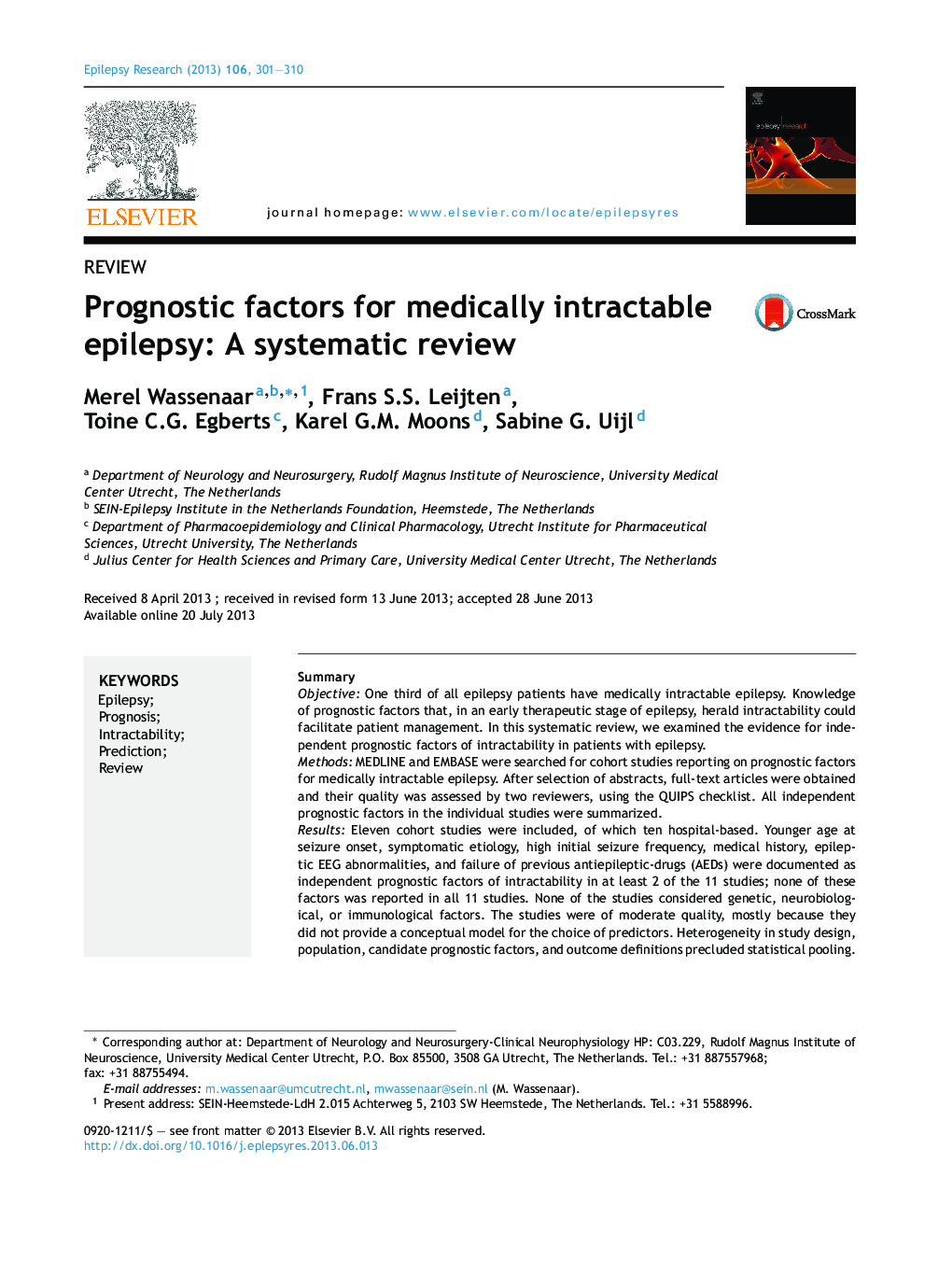| Article ID | Journal | Published Year | Pages | File Type |
|---|---|---|---|---|
| 3052236 | Epilepsy Research | 2013 | 10 Pages |
•Knowledge of prognostic factors on intractability facilitates patient management.•Several prognosticators seem relevant to predict medically intractable epilepsy.•Prognostic value of genetic, neurobiological and immunological factors yet unclear.
SummaryObjectiveOne third of all epilepsy patients have medically intractable epilepsy. Knowledge of prognostic factors that, in an early therapeutic stage of epilepsy, herald intractability could facilitate patient management. In this systematic review, we examined the evidence for independent prognostic factors of intractability in patients with epilepsy.MethodsMEDLINE and EMBASE were searched for cohort studies reporting on prognostic factors for medically intractable epilepsy. After selection of abstracts, full-text articles were obtained and their quality was assessed by two reviewers, using the QUIPS checklist. All independent prognostic factors in the individual studies were summarized.ResultsEleven cohort studies were included, of which ten hospital-based. Younger age at seizure onset, symptomatic etiology, high initial seizure frequency, medical history, epileptic EEG abnormalities, and failure of previous antiepileptic-drugs (AEDs) were documented as independent prognostic factors of intractability in at least 2 of the 11 studies; none of these factors was reported in all 11 studies. None of the studies considered genetic, neurobiological, or immunological factors. The studies were of moderate quality, mostly because they did not provide a conceptual model for the choice of predictors. Heterogeneity in study design, population, candidate prognostic factors, and outcome definitions precluded statistical pooling.ConclusionsWhile potentially relevant prognosticators of medically intractable epilepsy have been identified, the evidence for these factors is not consistent. There is a need for well-designed prognostic population-based cohort studies that also include pharmacological, genetic, neurobiological, and immunological factors. A valid model for the early prediction of medically intractable epilepsy could improve patient management.
